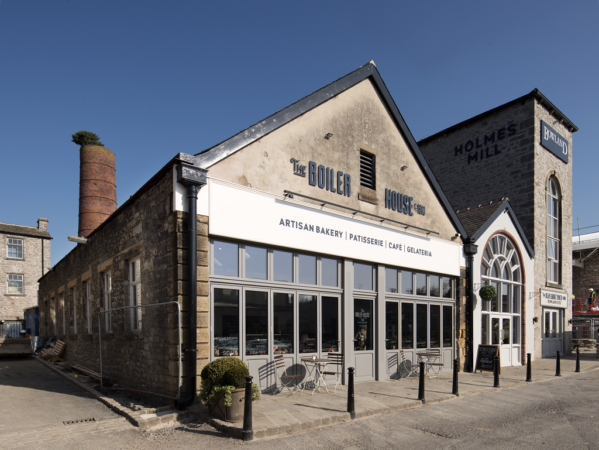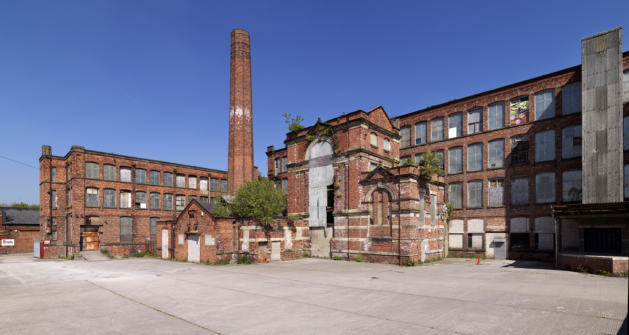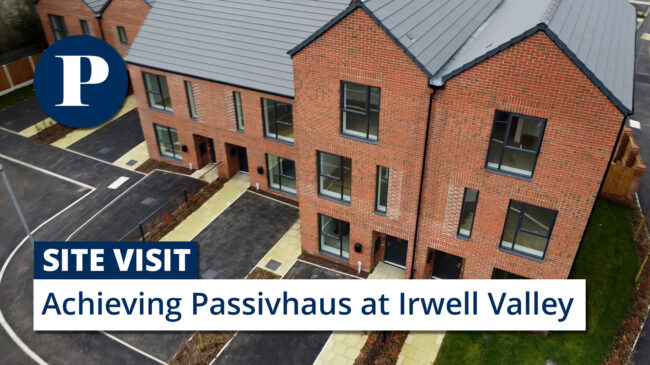NW in 2018 | Where there’s a mill, there’s a way
Picture this: it’s the close of 2018 and the grand re-opening of Sheppard’s Mill in Greatown, writes Catherine Dewar of Historic England.
It’s an old, hulking textile mill, one of the former northern powerhouses of the North West. This large brick building of four storeys sits proudly in the townscape, its chimney a local landmark and, with both imagination and determination, it’s been brilliantly converted to apartments. The opening is attended by the Mayor, Government housing and cultural agencies and the leader of the local authority. We’re all celebrating the re-use of this wonderful building – and there is good reason to celebrate.
The ground floor of this huge industrial building had been used for many years as a storage depot, but the upper floors were left vacant. The rental income didn’t cover the cost of maintenance, so it gradually declined and began to attract anti-social behaviour. For the locals, this place which was once part of a powerful industry had become a sad and sorry sight.
But today we’re here to see the ribbon being cut at the first newly converted apartments, which are stylish, affordable and within easy commuting distance of Manchester.
Ok, so this isn’t a real place, but the story will sound familiar to many across the region. So why couldn’t a successful regeneration like this happen?
At Historic England we are thinking carefully about the future of the North West’s textile mills. We’ve been working with Salford University and Cushman & Wakefield carrying out research into the potential to re-use the region’s historic textile mills and whilst we’ve lost almost half in Greater Manchester alone since the 1980s, there are still many left.

Cotton Works, Bolton. Source: Historic England Archive
There are nearly two million square metres of vacant floor space in textile mills across Greater Manchester and Lancashire, which is equivalent to 25,000 homes. We believe that mills can and should accommodate the North West’s growth needs, whether that is housing, leisure or light industrial uses. They have a place in our future.
Investing in industrial heritage can help with area-wide regeneration, playing a strong role in placemaking and local identity.

Holmes Mill, Clitheroe, Lancashire. Source: Historic England Archive
We’ve commissioned YouGov to poll people’s attitudes to mills and we know that 89% of North Westerners agree that historic mills are an important part of the country’s heritage, story and character, with 78% thinking that historic mills are as important to preserve as castles and stately homes. We also know that 85% of England’s population says they are against demolition and replacement of mills. So, whilst people are concerned about the condition of their local mills and the anti-social behaviour that any vacant building can attract, people do value their industrial heritage.

Eckersley Mills, Wigan. Source: Historic England Archive
We have evidence that we can all visit to show that this is possible. There are some incredible examples of where historic mills have been brought into imaginative re-use. Holmes Mill in Clitheroe is now a brewery, restaurant and hotel. The Cotton Works in Bolton has been converted into homes and English Fine Cottons are spinning cotton in Tower Mill in Duckinfield. People are living, working, playing and exercising in converted mills across the region. That’s why we need to start a wider conversation about our textile mills. Watch this space.
- Catherine Dewar is planning director for the North West at Historic England
The North West in 2018 series features guest contributors looking ahead to next year and is published throughout December.




